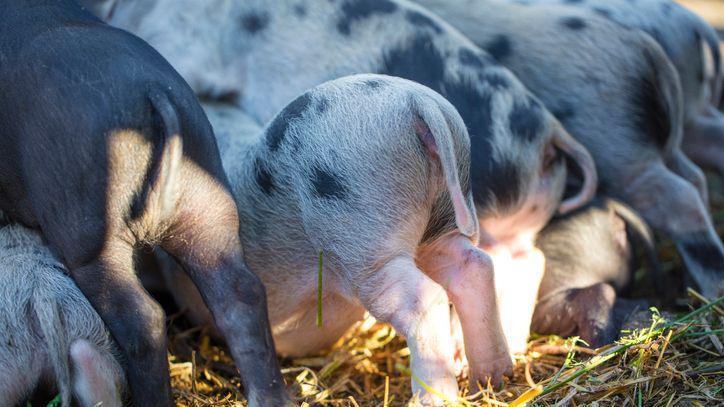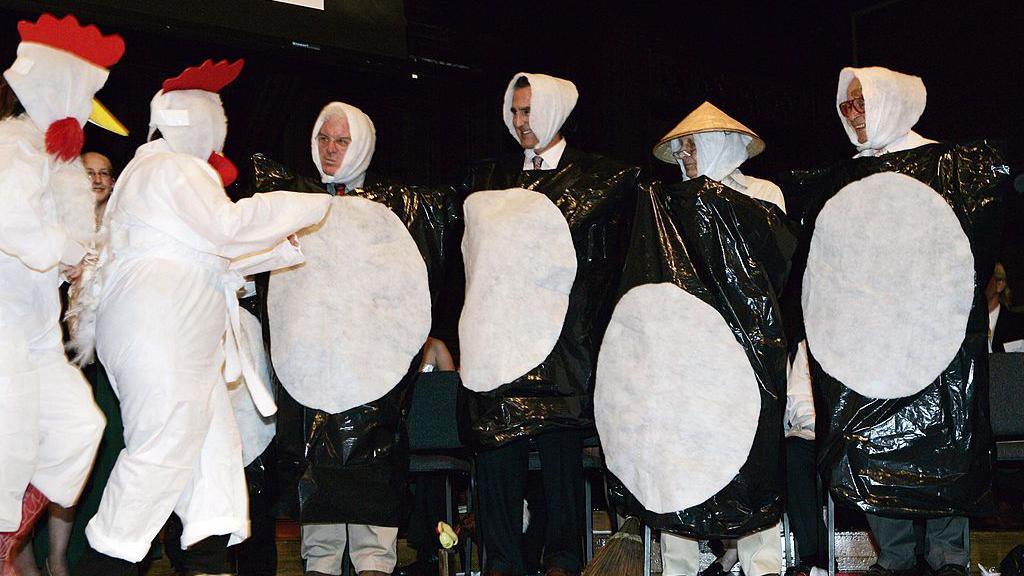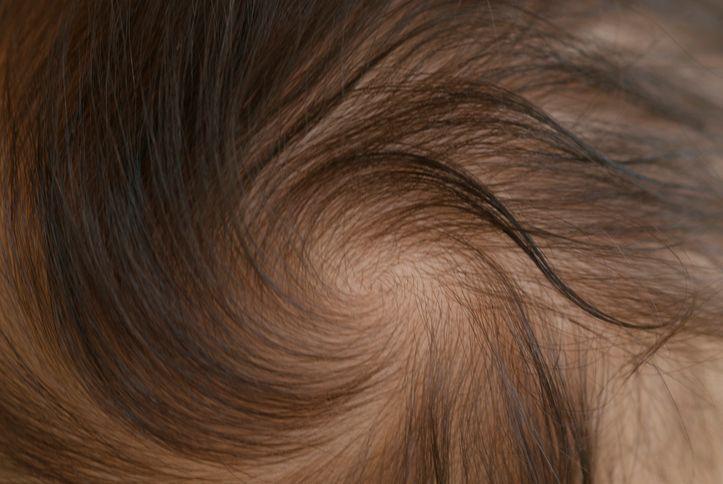Scientists win prize for discovering mammals can 'breathe' through bottoms

- Published
It might sound like a wind up, but a group of scientists have discovered that some mammals like mice, pigs and rats can breath through their bottoms!
Their cheeky discovery has led them to be awarded one of this year's Ig Nobel Prizes.
The annual awards look at the funny side of science and have been taking place for more than thirty years.
Keep reading to find out some of this year's other winners and let us know your favourite in the comments.
More science news
Scientists create tiny robots that could treat problems in the body
- Published6 September 2024
Scientists discover bats with GLOWING toes
- Published29 August 2024
Ice lollies in science lessons? What activities should be taught in school?
- Published21 August 2024
What is the Ig Nobel Prize?

The annual awards are a bit of a jokey version of the slightly more prestigious Nobel Prize
The Ig Nobel Prize awards are presented every year by a US science humour magazine.
They celebrate unusual experiments; ones which might make people laugh as well as think.
The “Igs” - as they're known - are a light-hearted alternative to the world famous Nobel Prize awards.
The Nobel Prize are awarded each year to a group or individual who has made a big contribution in one of several categories - Chemistry, Literature, Peace, Physics, and Physiology or Medicine.
Lots of famous people have won a Nobel Prize, including Albert Einstein, Mother Teresa and Martin Luther King.
So, the Ig Nobels aren't real Nobel Prizes, but they are still important prizes for science.
A lot of research goes into experiments and some help with real problems in the world.
There are 10 Ig award categories which included medicine, biology and probability.
Who were some of the 2024 Ig Nobel Prize winners?

Most hair tends to swirl clockwise (left to right) - unless you live in the southern hemisphere!
The Physiology Prize (the study of how the human body works) went to an international team of Japanese and US researchers for discovering that many mammals can breathe through their bottoms.
They said they were inspired by loach fishes, which are capable of breathing through their intestines.
The team found that many mammals, including mice, pigs and rats, can absorb oxygen (which is the gas that our lungs absorb when we breathe in) when it is delivered through their bottoms!
The scientists said their findings suggested that in the future, guts could also be used as an "accessory breathing organ."
An international team of scientists led by academics in Germany picked up the Ig Nobel Prize for Probability, which involved the team flipping more than 350,000 coins!

Heads or tails? Coin flipping becomes science!
They found that when people flip a coin it "wobbles" in the air, making it slightly more likely to land on the same side it started.
The experiment was carried out over 81 days, using 44 different currencies.
Lead researcher Frantisek Bartos explained that it was "fun to do some stupid stuff from time to time."
Other Ig Nobel winners included scientists in France who investigated whether hair on the heads of people in the northern hemisphere swirled in the same direction as those from the south.
They found that while the hair whorls of most people swirl clockwise (left to right) - in the southern hemisphere, counter-clockwise whorls are more common!
